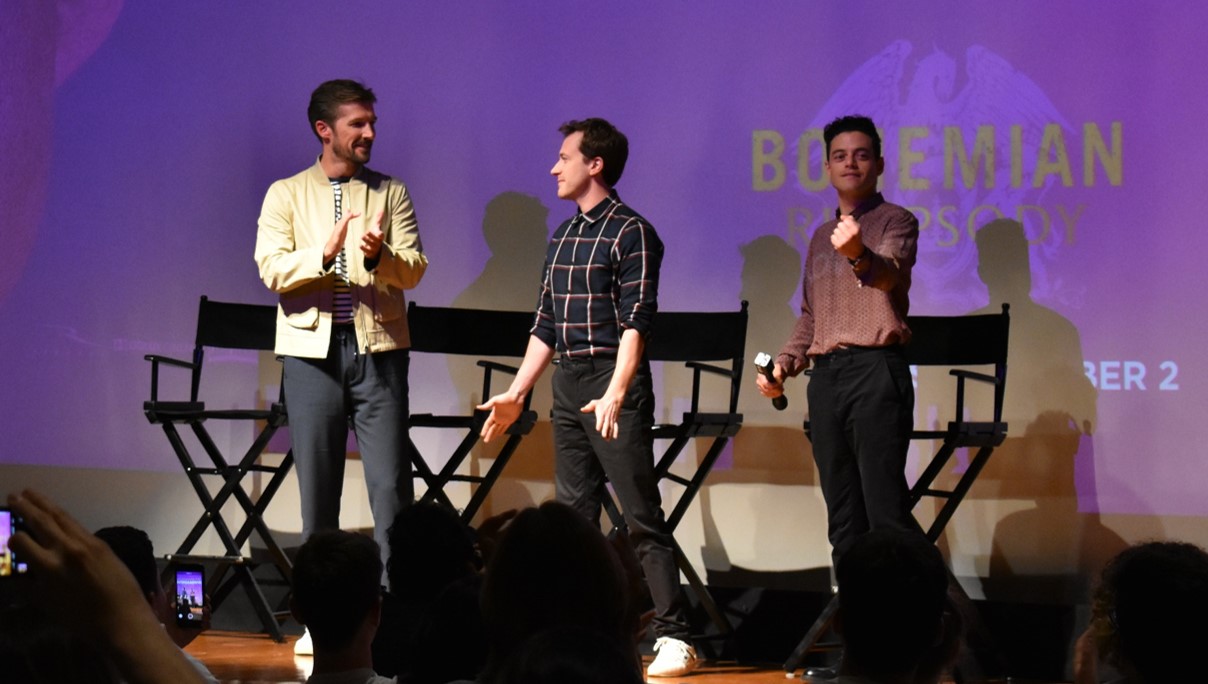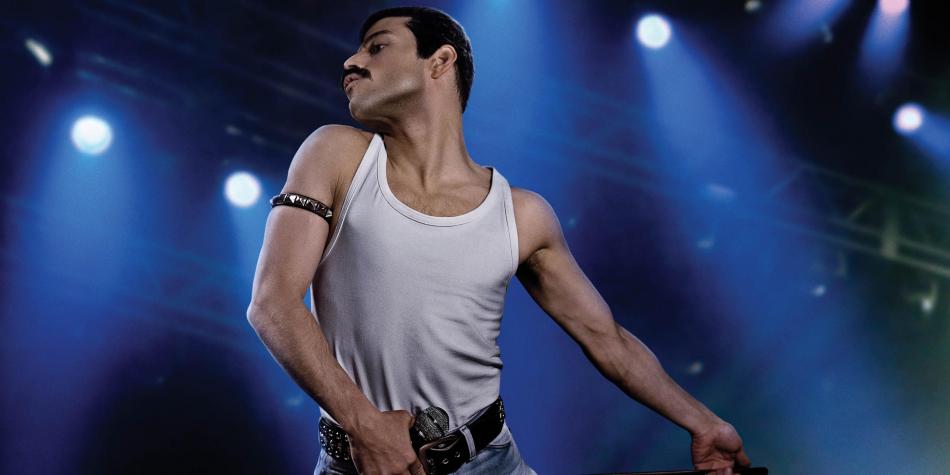
Thanks to the crew at the Bill Cosford Cinema, I was able to watch the first Miami screening of Brian Singer’s Freddie Mercury biopic, Bohemian Rhapsody (2018) a month before release, with a huge, enthusiastic crowd. We were additionally treated to a brief word introducing the film from stars Rami Malek, Gwilym Lee, and Joseph Mazello, who championed Queen as the band who makes outcasts feel at home. As for the film itself, Bohemian Rhapsody tells the story of Queen and their front man, Freddie Mercury, with great accuracy, delivering moving performances and the energy fitting of a performer like Freddie.
Bohemian Rhapsody primarily follows Freddie Mercury (Rami Malek), and his life from the formation of Queen in 1970 up until the 1985 Live Aid benefit concert. Along the way, the audience gets glimpses into the highs and lows of Freddie’s life, along with his relationships with guitarist Brian May (Gwilym Lee), drummer Roger Taylor (Ben Hardy), bassist John Deacon (Joseph Mazello), and his many partners.
The story of Queen, as covered by Bohemian Rhapsody, gives great insight into the band’s experimental creative process, as well as their struggles with record labels and each other. The constant push and pull within the band as they bicker over how many takes they need to record and whose song becomes the record’s single ultimately shows the side to collaborative art that is often overlooked by audiences. Though I do wish that Brian, Roger, and John had been given more screen time during the film, Bohemian Rhapsody is ultimately the story of Freddie Mercury, and his time with Queen simply plays a large part of his narrative.
Unfortunately, many audiences may walk into this movie expecting to get the story of “that cool gay British dude who sang fun songs and died of AIDS”, and nothing more. However, Bohemian Rhapsody doesn’t shy away from the fact that Freddie Mercury was in fact a bisexual, British Indian man, who would come to develop a big ego, struggle with substance abuse, and surround himself with people who didn’t have his best interests in mind.

Each actor played their role excellently, and there’s not one role in this film that I would recast. There was a swift swarm of gasps in the audience when the film showcased Freddie’s intimacy with Mary Austin (Lucy Boton), the woman to whom he dedicated the song “Love Of My Life”. Likewise, the audience laughed with the snarky British wit that Freddie and Queen exhibit through the film, and we cried as Freddie was betrayed, discovered his AIDS diagnosis, and revealed his status to his teary-eyed band mates.
Though too, the film doesn’t conclude the story of Freddie and Queen on the lows of his sad, slow death, but rather with a recreation of Queen’s set list for the Live Aid concert. As the audience smiled, and some of us cried more, we found each triumphant song re-contextualized by the story we had paid witness to. We all knew how Freddie’s story ends, and I applaud the filmmakers for leaving the audience on the high note of Queen’s legacy and the power of their music, rather than focusing on Freddie as another tragic victim of AIDS.
Though I like to think I knew the story of Freddie Mercury and Queen fairly well before watching this film, I still found myself watching Bohemian Rhapsody with bated breath. This film is absolutely worth watching, as regardless of your familiarity with Queen, it’s simply delightful.
 George Ibarra is a Senior at Florida International University, pursuing a Bachelor’s Degree in English with a minor in Sociology, along with Certificates in Exile Studies and Film Studies.
George Ibarra is a Senior at Florida International University, pursuing a Bachelor’s Degree in English with a minor in Sociology, along with Certificates in Exile Studies and Film Studies.
